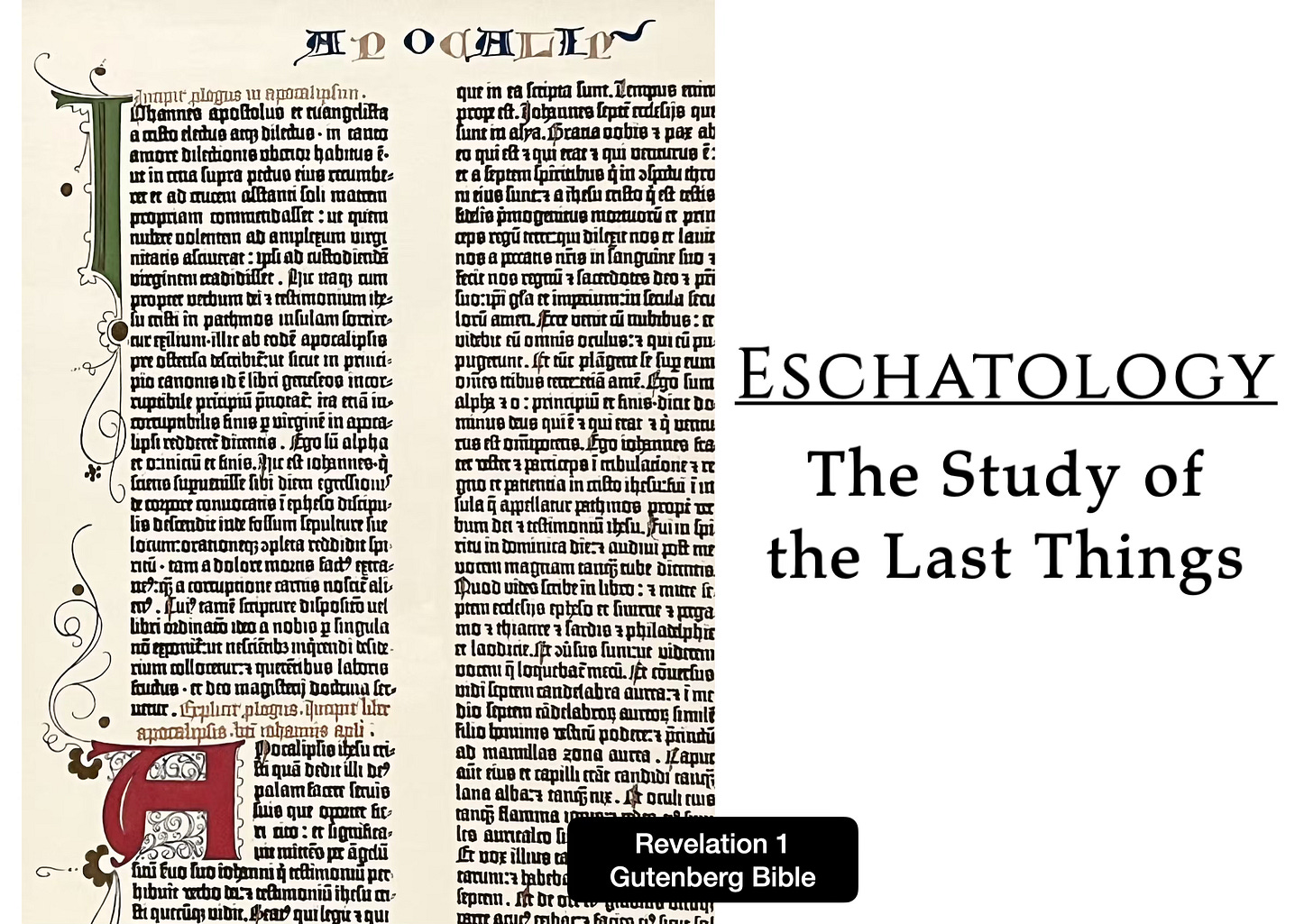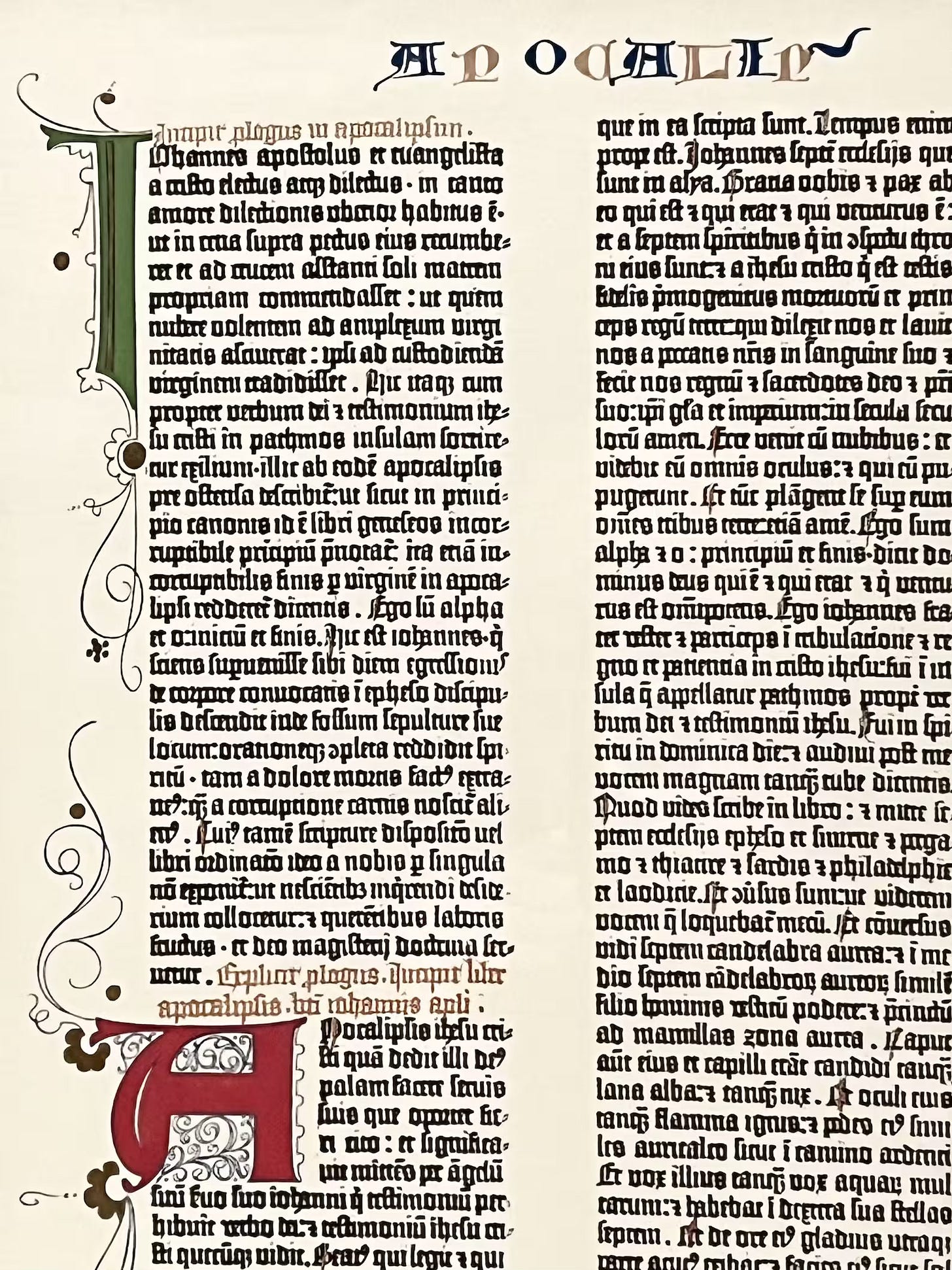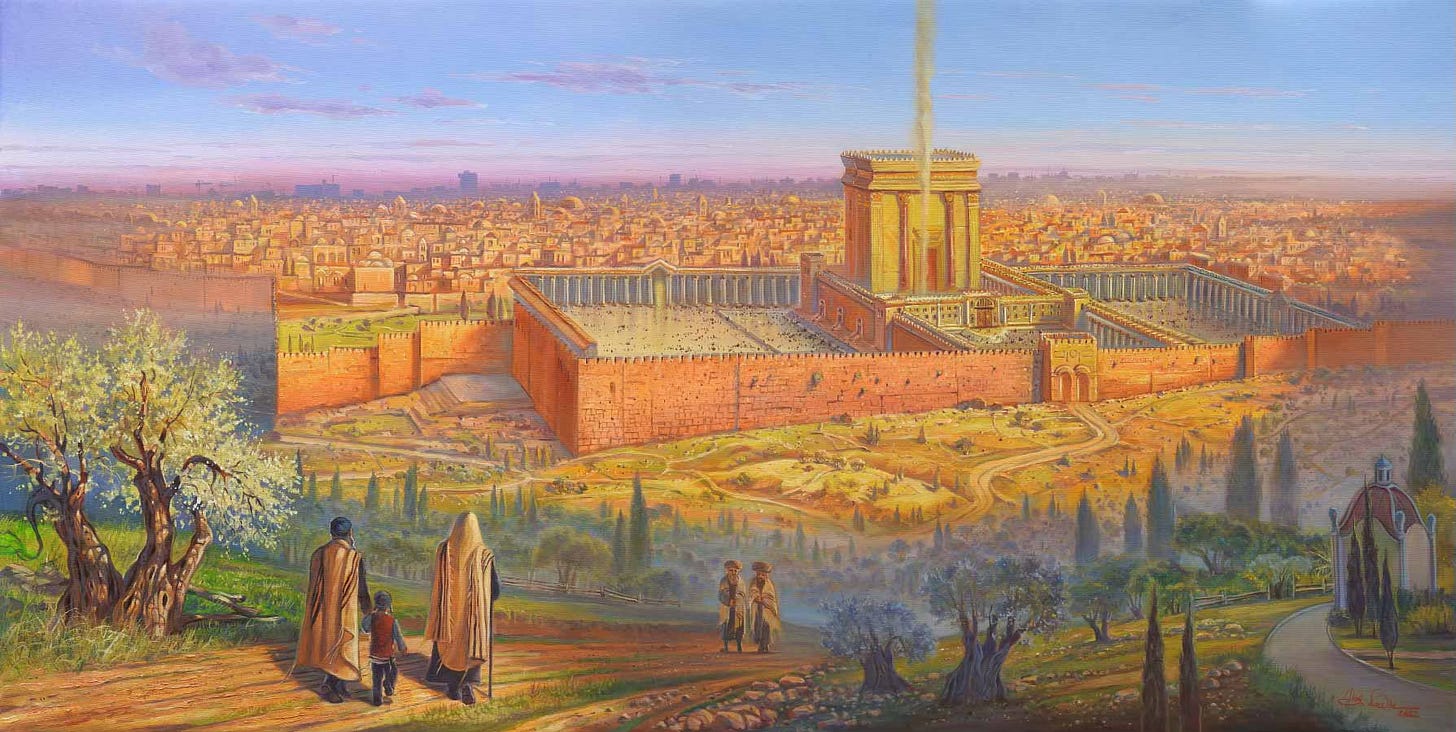Eschatology (es-kat-ology) means the Study of the Last Things. Christians commonly use eschatology and the end times interchangeably. Unfortunately, this causes extremes in how eschatology is viewed. Some Christians do not think eschatology is relevant and claim to be “pan-trib” (everything will pan out in the end) or they say “I’ve read the back of the Book and we win, so why do I need to study eschatology?” Pastors can wonder why they need to teach eschatology in their church when there are issues of sin and salvation that require more attention. The other side of the aisle only reads Bible passages that deal with eschatology. I recently told a friend that it is unfortunate that many good Bible lovers neglect eschatology but those who read about eschatology neglect the rest of the Bible. This is a generalization of course, but it rings true.
I can relate to the first group because for years I avoided eschatology, primarily because I hated the conspiracies and speculation that accompanied some end-time preachers. After I graduated from Bible College, I endeavored to carefully study each book of the Bible verse by verse, a project I knew would take several years. I planned to save Song of Solomon and Revelation for the last two books to study. Song of Solomon because I wasn’t yet 30 years old (joking), and Revelation because I did not want to deal with, what I thought, was the craziness and irrelevance of eschatology.
There are passages in Scripture that present blessings and wisdom for obeying God’s word (Cf. Matthew 7:24) but there is only one passage in Scripture that presents a blessing upon those for simply reading it.
Revelation 1:3 Blessed is he that readeth, and they that hear the words of this prophecy, and keep those things which are written therein: for the time is at hand.
This fact challenged my mindset and made me think that I needed to take eschatology more seriously. That summer (2019), I studied through the Book of Revelation (Of course, eschatology is not just found in Revelation, but Revelation is a primary eschatological book). In short, I went from avoiding Revelation, to now (Spring 2025) being involved in teaching the Eschatology course at Indiana Bible College.
We know Jesus will defeat Satan, sit on His throne, and the saints will dwell with Him. So why do we need to know and study more? This post will reflect on Three Reasons Eschatology is Important.
*I may be committing a grave error by writing about eschatology before dealing with and explaining the hermeneutical problem. (Hermeneutics = the method of reading and interpreting Scripture). One’s hermeneutics will determine their eschatology. A brief example, if one is open to allegory and spiritualizing Biblical passages, then their views will greatly differ from one who believes in a plain-reading (author’s literal intent) of the Bible. When allegory/spiritualizing texts occur then interpretations become subjective, because you can make a text mean practically whatever you want it to mean. This article is not focused on various viewpoints, but merely attempting to articulate the significance of eschatology. However, I understand that some may disagree with some of my ideas based on differences in hermeneutics. I humbly request that you do not shoot me down until you see my hermeneutics and arguments in future posts!
1. God’s Plan
I have come to the conviction that Eschatology should not be regarded merely as the end times. Eschatology means the Study of the Last Things, meaning the last parts of God’s plan, the last things to be fulfilled and completed. True eschatology begins in Genesis. This concept is crucial, it helps us see how God’s plan carries from the OT into the NT and into eternity. Point 1, the Completion of God’s Plan, should help both sides of the eschatological aisle (those that avoid Revelation & those that only study Revelation) to understand the unity of Scripture and God’s ultimate goals. The infilling of the Holy Ghost is not the only part of God’s plan that we should applaud, but He is working to reverse what was lost in Genesis, which will be completely restored in the era of Revelation 22. Pentecostals can preach about the Upper Room, but what comes after that? What is the final destination of the saints? It is not Heaven… Eschatology provides answers to questions of eternity and God’s final purposes.
2. Revelation
I do not trust anyone talking about eschatology who says ‘the Book of Revelations’ (slightly joking, but not really!) Revelation is not filled with multiple revelations of Satan, the Beast (Antichrist), and Jesus. The final book of the Bible opens with, “The Revelation of Jesus Christ” (Rev. 1:1). There is one, single revelation of who Jesus is. Revelation refers to something being revealed, and John provides us with a full picture of who and what Jesus is/will be. Jesus is the Lamb, therefore, He is the only one able to open the Seals and bring judgment as the Son of Man (cf. Dan. 7). Jesus was a humbly born baby, but when He returns He will come as the Divine Warrior to conquer and make war (cf. Isa. 63:1-3 & Rev. 19:11-16). The depictions of Jesus from Revelation have not yet been seen in human history, which is why they have been revealed to us through John, to show us a complete image of our Messiah-King. In short, He was a humble lamb dying the servant’s death, but He will be the Almighty King, the destroyer of evil and ruler over all.
3. Identity and Purpose
Eschatology impacts the identity and purpose of the Church. This section is a little more difficult to describe in brevity, but eschatological positions will dictate what one believes about the future of Israel, the role of the Church, and how God views His Church.
Identity: Has the Church replaced Israel and has now become spiritual Israel? Are Christians spiritual Jews or will God keep His OT promises to the Jews and reestablish David’s throne? Maybe God has discarded Israel so the Church should as well. This puts God’s character into question.
Purpose: One’s eschatology fuels evangelism. Those who believe in the Doctrine of Imminency (the belief that Jesus could return at any moment) should be driven to evangelize with urgency, but those who do not believe in imminency may or may not be as motivated.
Furthermore, those who adhere to three eternal destinations may not see the need to evangelize by spreading the ‘full’ Gospel to others. If other denominations, according to the three-destination view, are walking according to the ‘light’ they know then they are saved, but exposing them to the Truth would put responsibility upon them to obey Acts 2/John 3. This exposure becomes a problem because now more light has been revealed and if they do not follow that then they will be damned. Therefore, the application could promote a reduction in evangelism. Eschatology truly does impact the purpose of the Church.
Hermeneutics dictate what one will believe about the Millennial Reign, which in turn will impact purpose. If one follows Post-Millennialism (Jesus will come after the Millennium is over) then one asserts that the Church will bring about the Millennium (instead of Jesus starting the kingdom in person). The NAR (New Apostolic Reformation) group has taken the focus of miracles and revival to outside of Biblical teaching, and they declare that the church is essentially the kingdom and will take over the world through miracles, signs, and wonders. (Psalm 2, Daniel 2, Isaiah 11, and Revelation 19 contradict these claims). Again, your eschatology will inform your views on evangelism.
In conclusion, we should be more than eschatology buffs and more than ‘pan-trib’ adherents. God’s character is revealed in eschatology to be faithful to His promises to save, rule, and destroy. He must be trusted to both save and to judge, for if He is not faithful to do one then He cannot be trusted to do the other. Eschatology shows us that God will gather His people, destroy evil, and rule as the eternal King. Saints should study and attempt to understand eschatology in order to understand God’s character and the completion of His plan.








